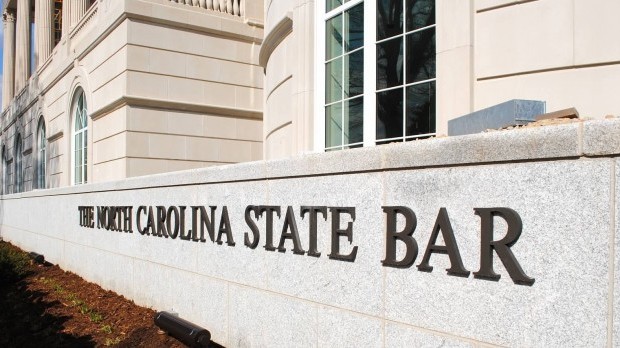Inadvertent Disclosure of Privileged Information: Major Headache or Minor Hiccup?
You are going through the discovery materials that opposing counsel sent you when you come across a document that is marked “Privileged.” How do you handle this situation? What are your duties?
Editor’s Note: The Campbell Law Observer has partnered with the Brocker Law Firm, a local law firm that concentrates in ethics and disciplinary matters, to occasionally re-publish articles from the firm’s NC Legal Ethics blog. The following article was recently published on the firm’s site, along with other posts discussing ethics topics affecting North Carolina lawyers.
You are going through the discovery materials that opposing counsel sent you when you come across a document that is marked “Privileged.” How do you handle this situation? What are your duties? What if the document is not clearly marked privileged, but you begin to read it and immediately recognize that it is privileged communication? What if that privileged document contains the evidence you need to prove your case, the “smoking gun” so to speak? What happens to the privilege? Is it destroyed?

Crystal Carlisle, Brocker Law Firm
When considering these questions, you will find some guidance in Rule 4.4(b) of the North Carolina Rules of Professional Conduct. Rule 4.4(b) states that “[a] lawyer who receives a writing relating to the representation of the lawyer’s client and knows or reasonably should know that the writing was inadvertently sent shall promptly notify the sender.” Comment 2 under this rule indicates that notification is necessary in order to “permit that person to take protective measures.”
What protective measures can the sender take after he inadvertently produces information?
What protective measures can the sender take after he inadvertently produces information? Rule 26(5)(b) of the North Carolina Rules of Civil Procedure lists the steps necessary for both parties when privileged information is inadvertently produced. Specifically, the sender may assert a claim to privilege by notifying opposing counsel of the claim and basis for it. Upon receiving notification of the claim, opposing counsel then “(i) must promptly return, sequester, or destroy the specified information and any copies [he] has, (ii) must not use or disclose the information until the claim is resolved, (iii) must take reasonable steps to retrieve the information if the party disclosed it before being notified, and (iv) may promptly present the information to the court under seal for determination of the claim.” The sender must then take care to preserve the information until the court determines whether the information is indeed privileged.
If you have determined that the document received is privileged, and you are confident you know what your duties are after reading RPC 4.4(b) and Rule 26(5)(b), the question becomes, can you read or continue reading the document? The Rules of Civil Procedure do not answer this question and Rule 4.4 and its comments effectively overruled a previous ethics opinion (RPC 252) concluding that a lawyer should refrain from reading it. A more recent opinion dealing with review of employer-obtained e-mails between the employee and his attorney suggests that whether an attorney may read the contents depends upon whether the privilege has been waived by the disclosure of the information.
If Attorney A is able to conclude, confidently and in good faith, that the privilege was waived, he may read the emails and use them to represent his client. However, in deference to the bar’s interest in protecting the attorney-client privilege, Attorney A should err on the side of recognizing the privilege whenever an analysis of the facts and case law is inconclusive. If a matter is in litigation, Attorney A may seek the court’s determination of the waiver issue.
If you are certain the privilege has been waived, then it appears you may ethically review the information.
2012 FEO 5, Opinion #3. This opinion does not deal with inadvertent disclosure, but the quoted language is still instructive. As a matter of professionalism, if you believe the information produced is clearly or likely protected by the privilege on its face, our advice would be to refrain from reviewing the information. If you are certain the privilege has been waived, then it appears you may ethically review the information. If you are uncertain about the privileged nature of the document, you may need to review some or most of the document to make that determination. Ultimately, you should always notify opposing counsel that you have received a potentially privileged communication, and you should not attempt to use an arguably privileged communication without court resolution or consent. Although the ethics opinions do not clearly prohibit the review of privileged information if inadvertently produced, if you are ever presented with this dilemma, just think about how you would want opposing counsel to handle this situation if it were you that inadvertently disclosed confidential information.
Once you have navigated and closely followed the rules regarding how to handle inadvertent disclosure, a very important question remains: Does inadvertent disclosure destroy the privileged nature of the communication?
Case law in NC regarding this issue is “not well developed.”
This is an interesting question and one that the RPCs seem to avoid. In fact, Comment 2 of RPC 4.4 states that “the question of whether the privileged status of a writing has been waived” is “a matter of law beyond the scope of these rules.”
So how does North Carolina case law address this issue? Case law in NC regarding this issue is “not well developed.” Blythe v. Bell, 2012 NCBC 42 (N.C. Super. Ct., July 26, 2012) 2012 WL 3061862; see also Morris v. Scenera Research, LLC, 2011 NCBC 33 (N.C. Super. Ct., Aug. 26, 2011), 2011 WL 3808544. The Court in Morris had used the Fourth Circuit’s “five-factor balancing test” to determine if the privilege had been waived upon inadvertent disclosure. The Court elected to use the Fourth Circuit’s test in that particular case because the issues arose during discovery while the case remained in federal court awaiting remand, and the discovery plan was developed using the federal rules. Blythe at ¶ 51 citing Morris. The Court in Blythe opined that the Fourth Circuit’s test was “an appropriate vehicle for the North Carolina state courts.”
So what are the balancing test factors?
- The reasonableness of the precautions taken to prevent inadvertent disclosure;
- The number of inadvertent disclosures;
- The extent of the disclosures;
- Any delay in measures taken to rectify the disclosures; and
- The overriding interests of justice.
Blythe at ¶ 52 citing Morris, 2011 NCBC 33 at ¶ 45.
Are some factors more important than others? The Court in Blythe found “that the balancing test is controlled by the first factor, and that the absence of reasonable precautions undertaken before the production of privileged communications prevents the court from using the other factors to protect against waiver.” Blythe at ¶ 53. The Court also stated that “[w]hether the efforts were ‘reasonable’ obviously depends on the particular circumstances that may vary from case to case.” Blythe at ¶ 54.
So, in short, the answer to whether the privilege is waived by the inadvertent disclosure is one that will vary. Because there is no clear answer, it is very important to ensure you have procedures in place to prevent inadvertent disclosure of privileged information, but if you happen to disclose such information, notify opposing counsel as quickly as possible to hopefully resolve the matter. It is wise to keep professionalism in mind when deciding whether to challenge the privilege, as this situation could just as easily happen to you.






